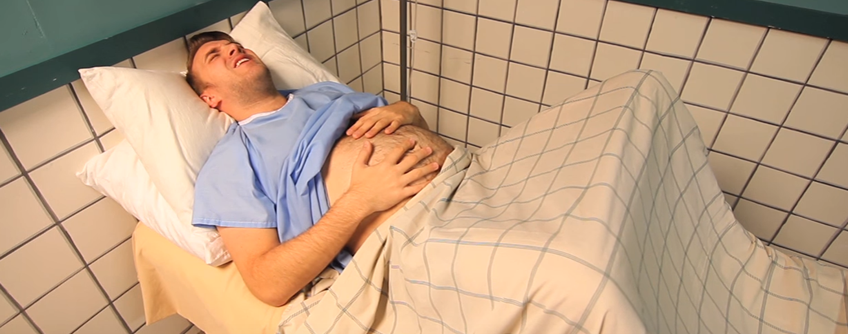Live Womb Transplants: A Community Activist's Proposal For Transgender Childbirth

Table of Contents
The Current Landscape of Transgender Reproductive Rights
Currently, transgender individuals seeking to carry a child face significant limitations. Options such as surrogacy and adoption, while available, present considerable hurdles. The emotional and physical toll of these processes can be substantial, often involving extensive legal procedures, high financial costs, and the emotional strain of navigating a system not designed for their unique needs.
- Limited access to fertility treatments: Many fertility clinics lack the expertise or willingness to provide services to transgender individuals.
- High cost of surrogacy and adoption: The financial burden associated with surrogacy and adoption often makes these options inaccessible to many transgender people.
- Emotional challenges of navigating existing reproductive systems: The process can be emotionally draining, involving numerous appointments, legal complexities, and potential discrimination. The lack of tailored support for transgender individuals exacerbates these challenges. This often leads to feelings of isolation and marginalization.
Live Womb Transplants: A Technological Possibility?
Live womb transplants present a potential, albeit complex, solution. While still in its nascent stages, research in uterine transplantation offers a glimmer of hope. However, significant scientific challenges remain. The procedure is incredibly complex, requiring advanced surgical techniques and sophisticated immunosuppression protocols to prevent rejection.
- Immunosuppression challenges: Preventing the recipient's body from rejecting the transplanted uterus requires powerful immunosuppressant drugs, carrying their own risks and side effects.
- Surgical complexities: The surgery itself is highly invasive and carries a significant risk of complications.
- Potential long-term health risks: The long-term effects of immunosuppression and the surgery itself on the recipient's health are still largely unknown.
- Ethical considerations surrounding uterine donation: The ethical implications of uterine donation, including informed consent and potential exploitation, need careful consideration.
Ethical and Societal Implications of Live Womb Transplants
The ethical dilemmas surrounding live womb transplants are multifaceted. Beyond the medical risks, there are profound social and cultural considerations. Concerns exist about the potential for exploitation of vulnerable populations, the commodification of the body, and the potential for discrimination against individuals undergoing the procedure.
- Informed consent from both donor and recipient: Ensuring fully informed and voluntary consent from both the uterine donor and recipient is paramount.
- Potential exploitation of vulnerable populations: Strict regulations are needed to prevent exploitation of vulnerable individuals who might be pressured to donate uteruses.
- Long-term psychological impact on the child: The psychological implications for a child born through this procedure need careful consideration and ongoing research.
- Societal acceptance and integration: Broad societal acceptance and integration of this technology will depend on open dialogue and education.
The Activist's Perspective and Call for Dialogue
Community activists championing the proposal for live womb transplants emphasize the importance of expanding access to reproductive technologies for transgender individuals. Their arguments highlight the need for inclusivity and the right to bodily autonomy. They are not just advocating for a procedure; they are advocating for reproductive justice.
- Importance of inclusivity and representation in healthcare: Activists stress the need for inclusive healthcare systems that cater to the diverse needs of transgender individuals.
- Need for increased research funding for transgender reproductive health: Significant funding is necessary for further research into live womb transplants and other reproductive options for transgender individuals.
- Importance of ethical guidelines for novel reproductive technologies: Establishing robust ethical guidelines is vital to ensure the responsible development and application of this technology.
Conclusion
The concept of live womb transplants for transgender individuals presents a complex intersection of medical possibility, ethical considerations, and social justice. While significant scientific and ethical hurdles remain, the discussion, driven by community activists, necessitates a thoughtful and inclusive dialogue. The potential benefits – providing a pathway to parenthood for a marginalized group – must be weighed against the risks.
Further research and open conversations about the ethical and practical aspects of live womb transplants are crucial for charting a responsible path forward, ensuring equitable access to reproductive choices for transgender individuals. The future of transgender childbirth may rely on continued exploration of innovative approaches like live womb transplants, demanding a careful and compassionate consideration of their implications. Let us engage in a respectful and informed discussion on this complex issue, striving towards a future where all individuals have access to reproductive healthcare that meets their needs.

Featured Posts
-
 Review St Albert Dinner Theatres Hilarious New Production
May 10, 2025
Review St Albert Dinner Theatres Hilarious New Production
May 10, 2025 -
 Elon Musks Net Worth Soars Tesla Stock Surge After Dogecoin Departure
May 10, 2025
Elon Musks Net Worth Soars Tesla Stock Surge After Dogecoin Departure
May 10, 2025 -
 Growth Opportunities Mapping The Countrys Emerging Business Hotspots
May 10, 2025
Growth Opportunities Mapping The Countrys Emerging Business Hotspots
May 10, 2025 -
 Ukraina I Ee Soyuzniki Otsutstvie Nekotorykh Gostey 9 Maya V Kieve
May 10, 2025
Ukraina I Ee Soyuzniki Otsutstvie Nekotorykh Gostey 9 Maya V Kieve
May 10, 2025 -
 Strictly Katya Joness Exit A Wynne Evans Connection
May 10, 2025
Strictly Katya Joness Exit A Wynne Evans Connection
May 10, 2025
